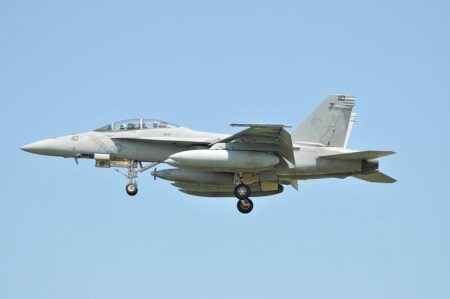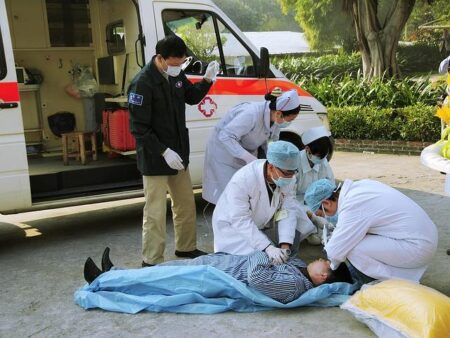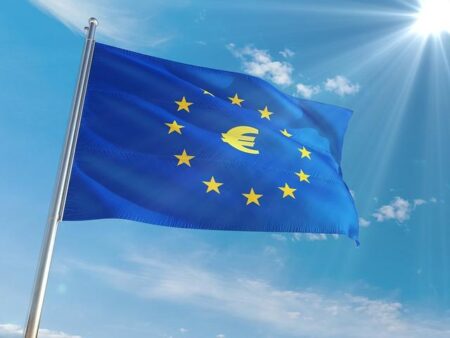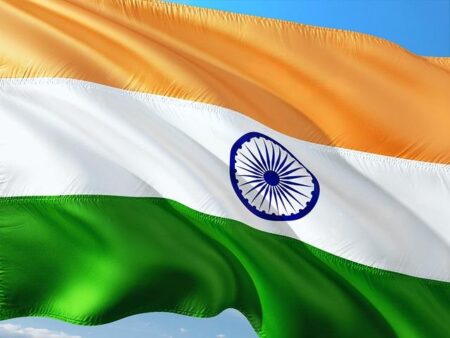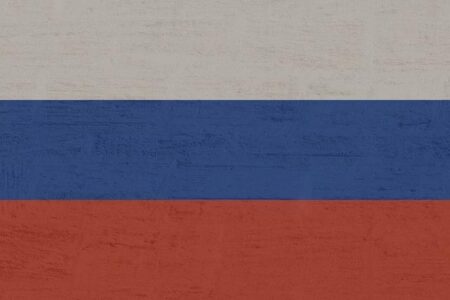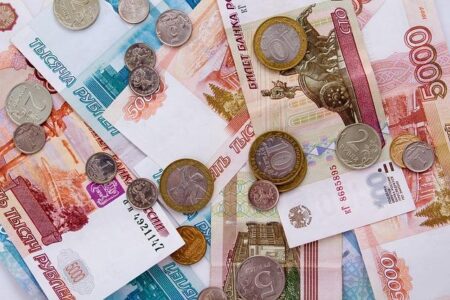France is boldly redefining its Arctic strategy to tackle escalating geopolitical challenges head-on. This dynamic shift aims to amplify its influence and forge stronger alliances in the polar region, as global powers sharpen their focus on this vital frontier
Browsing: Geopolitics
The U.S. has reportedly hit the pause button on plans to sanction a Chinese spy agency, all to safeguard the fragile trade truce, according to sources cited by the Financial Times. This strategic move aims to keep tensions from boiling over during these delicate negotiations, Reuters reveals
A recent video thrillingly captures India boldly test-firing a cruise missile, sending a clear and powerful message to its adversaries. This impressive display highlights India’s rapidly advancing military might amid escalating regional tensions
China’s foreign aid strategy brilliantly blends ambitious infrastructure projects with thoughtfully designed strategic partnerships, targeting vital regions like Africa and Asia. Steering clear of the heavy-handed political influence typical of Western aid, Beijing’s approach stands out for its subtlety and sharp focus
The EU is reigniting its stalled China de-risking strategy, boldly aiming to reduce economic dependence amid rising geopolitical tensions. This decisive action underscores Brussels’ dedication to forging diverse trade partnerships and creating stronger, more resilient supply chains
China, invoking the lingering shadows of World War II, has passionately called on Europe to join its side against Japan amid rising regional tensions. This appeal underscores deep-rooted historical scars and escalating geopolitical rivalries sweeping across Asia
India has strongly dismissed Pakistan’s claims of being denied airspace for its humanitarian aid to Sri Lanka, labeling them as “ridiculous.” Indian officials emphasized the smooth and uninterrupted transit of relief supplies, directly countering Islamabad’s assertions, NDTV reports
France is determined to “turn the page” in Africa after years of strained relations, but many analysts argue that skepticism still runs deep across the continent about Paris’ true intentions and its ongoing influence in the region
Russian President Vladimir Putin is set to boost energy and defense exports during his visit to India, aiming to strengthen strategic ties as global geopolitics continue to evolve, Reuters reports
China has strongly condemned Japan’s plans to export missiles to the Philippines, sparking serious concerns about regional security. On the other hand, Tokyo views this decision as a vital step to strengthen defense amid rising tensions in East Asia
Five South African nationals have appeared in court, charged with recruiting people to join Russia’s military campaign in Ukraine-raising urgent alarms about foreign influence and national security threats
India’s Prime Minister Narendra Modi is set to unveil a groundbreaking arms deal to Russia’s Vladimir Putin, boldly standing firm against US pressure to limit military cooperation. This bold step showcases New Delhi’s masterful strategic maneuvering amid escalating global tensions
The UK is boldly redefining its foreign policy, striving to assert greater independence from the US amid shifting global dynamics. This move underscores London’s determination to expand its alliances and champion a unique strategic vision, experts at the Chicago Council on Global Affairs reveal
China’s tightening trade policies and escalating regulatory hurdles are sending shockwaves through global supply chains, posing fresh challenges for international businesses striving to navigate this intricate trade landscape, reports the Financial Times
Brazil’s multi-alignment strategy unfolds as a masterful dance in global diplomacy, expertly balancing ties with the world’s major powers. Is this a clever play rooted in national interest, or just opportunism wearing the mask of ideology? Modern Diplomacy digs beneath the surface to reveal the real story
India and the UK are igniting a powerful alliance in the defence industry through thrilling joint ventures and groundbreaking technology transfers. This vibrant collaboration promises to fuel innovation and strengthen strategic bonds, tackling the evolving challenges of global security with renewed vigor
Germany is bracing for an “inevitable” showdown with Russia, ramping up military readiness and fine-tuning strategic plans as tensions escalate across Eastern Europe. Officials emphasize the urgent need to strengthen national defense without hesitation
Japan’s new leader is turning a recent clash with China into a dynamic political weapon, igniting national unity and boldly reshaping Tokyo’s role in regional diplomacy. This signals a striking new chapter in Japan’s strategic approach
China has unveiled groundbreaking advancements in its nuclear arsenal, dramatically enhancing its deterrence capabilities against potential threats. This bold move underscores Beijing’s steadfast commitment to strengthening its strategic defense power
Russia’s economy is under intense pressure as the ongoing war disrupts everyday life and escalating international sanctions tighten their grip. Supply chain breakdowns and soaring costs are deepening financial challenges, casting a shadow over the nation’s economic outlook


